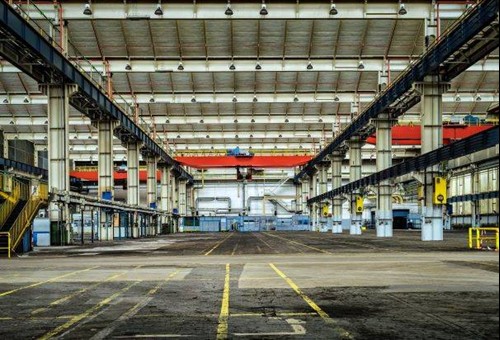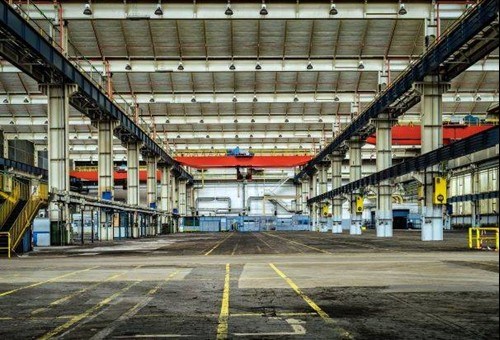
Why Manufacturing Business Needs to Integrate Salesforce CRM with ERP?
Many manufacturing businesses typically focus on production planning, scheduling, and management when it comes to their business strategy and vision. As a result, this takes the attention away from some other business applications such as CRM (Customer Relationship Management) which can help improve sales and marketing efforts.
One of the main benefits of a CRM system (for example: Salesforce CRM) is to help companies improve customer relationships: by creating a 360 degree and centralized view of customer data from all touchpoints and channels as well as from another integrated system.
This, in turn, will help the company’s employees (e.g. sales and marketing users) to provide customers a more personalized approach as well as gathering insights from business data to make informed decisions and thus, increase sales as a result. A question that gets asked quite often is whether manufacturing business needs a dedicated CRM system (e.g. Salesforce CRM) since many of them already have ERP (Enterprise Resource Planning) system in place.
Many manufacturers think that they don’t need one since they feel that their sales team already have a working customer management process in place using traditional method (e.g. Microsoft Excel Spreadsheets and Outlook, Calendar etc.).

In this article, we’ll explore the benefits of how integrating a CRM system such as Salesforce CRM can bring to manufacturing businesses and the reasons why manufacturers should acquire one.
Main Features and Benefits of CRM system to consider
First of all, let’s consider some of the major benefits and popular features which a CRM system like Salesforce CRM can bring, including:
- Contact Management: allow users to capture, record as well as retrieve all prospects and customers’ data regarding their interaction with business (e.g. calls, emails, appointment, purchase history, etc.). As a result, this helps employees to connect and serve prospects and existing customers better.
- Opportunity Management & Leads Scoring: supports sales and marketing team with automated leads scoring and nurturing process, as well as sales assignment and ownership.
- Order History: record purchase orders made by customers and help complete the 360-degree view of customers.
- Mobility: A cloud-based CRM like Salesforce allows users to access their sales data through CRM software on mobile devices, all the time, as long as an internet connection available.
Etc.
Why ERP alone is not enough for a manufacturing business?
Many manufacturing business adopt ERP systems to manage and automate many back-office functions, especially when it comes to inventory and production planning, as well as manufacturing.
Some ERP solutions are said to have the capacity to help with sales and marketing activities with a built-in CRM module. However, using the system for the purpose that it was not created for could prove to be inefficient.
TP&P Technology is an Official Salesforce Consulting Partner in Vietnam - Get in touch with us today!
This is because the sales team needs to focus mainly on customers’ data, and they will need a convenient way to access a business system to retrieve such data quickly and easily. ERP system, on the other hand, put more of a focus on back-office functionalities. Thus, sales and marketing employees will need to navigate through many different areas of the ERP system to gather the required information for their tasks.
Further, there might be potential security issues when the sales team access the ERP system by accidentally making changes on data that belonged to other departments. This means that there should be a solution when it comes to access to business data and security, as well as integrating ERP-CRM to allow sales team access to the information which ERP holds in order to maximize the benefits CRM provides. Experienced Salesforce CRM consultants and developers can help with this.
How Salesforce CRM can benefit manufacturing business?
As mentioned above, Salesforce CRM is designed to help sales and marketing users with lead management and nurturing, while also improving relationships with existing customers.
For newly acquired customers, through sales forecasting, the sales department can provide valuable information in regard to the planning of future production to match with the upcoming sales in the future period.
Similarly, by going through reports and purchase history of existing customers, the sales team can predict and set-up the appropriate time for follow-up as well as the timing of the next sales.
In turn, this will helps the back office estimate and allocate adequate resources to plan for production. Accurately forecast production levels is always one of the main priority for manufacturing businesses as it can assist in ensuring that the manufacturing floor has the sufficient materials and labors required and machinery are in working order, especially during the high season.
Conclusion
In addition to the ERP system, manufacturers can improve their business processes and increase business efficiency by integrating Salesforce CRM in their enterprise application system. Doing so allows sales and marketing people to have access to information about prospects and customers quickly and easily, in a centralized way, thus increase efficiency and productivity.
Side-note:
TP&P Technology is a leading software development & IT business consulting company in Vietnam, we have been featured as Top CRM Software Development Company on SoftwareDevelopmentCompany.co - Contact us today for a no-cost consultation on your Salesforce CRM requirements.



